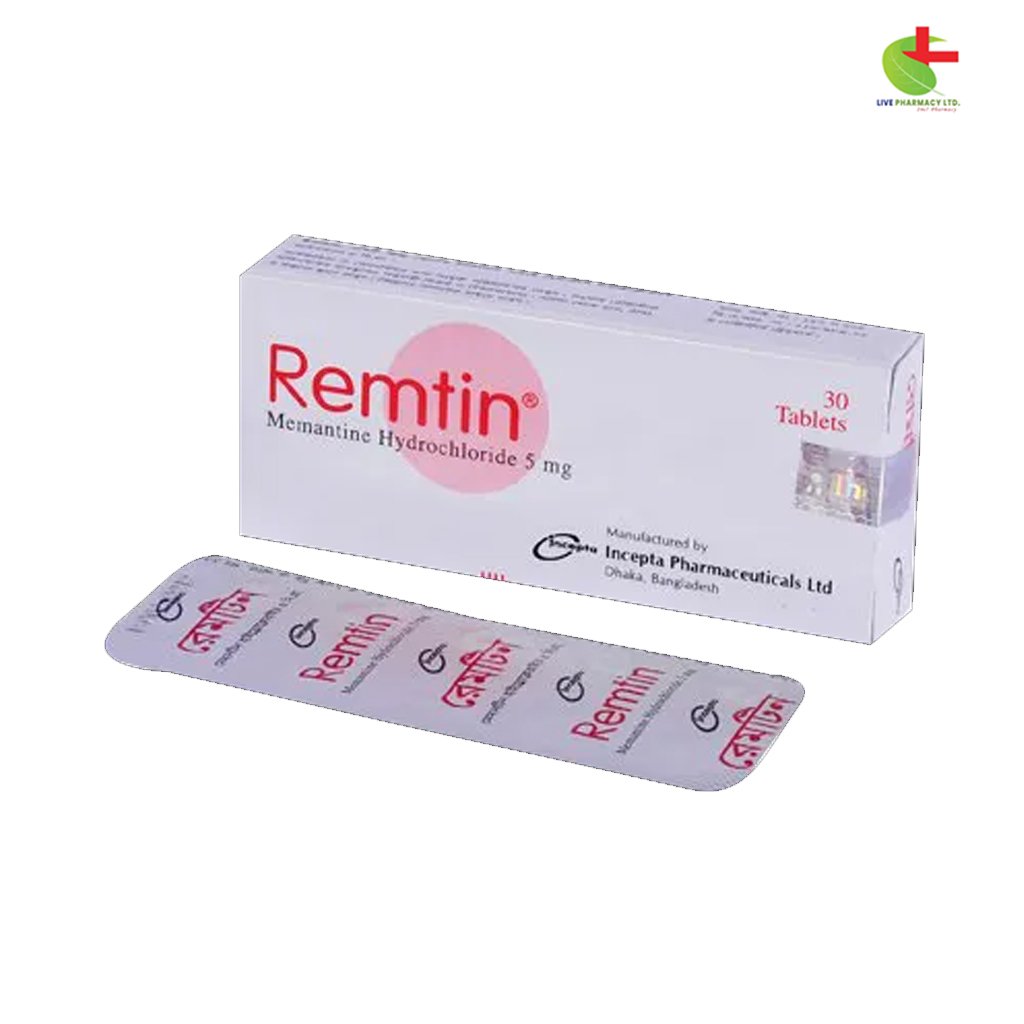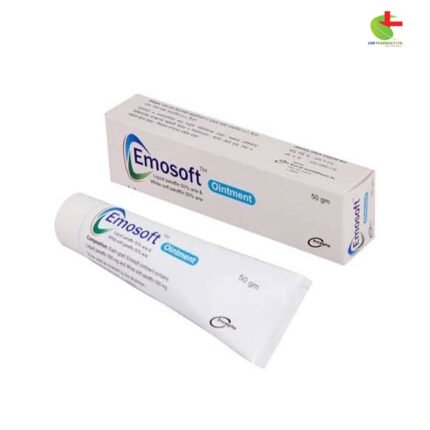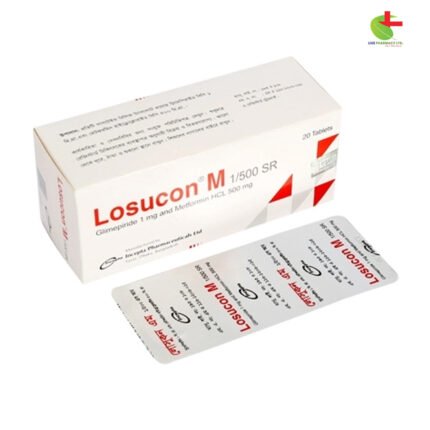Remtin 5
100.00৳ Strip
- Remtin is indicated for the treatment of Alzheimer’s-type dementia and various other forms of dementia.
- Its active ingredient, Memantine, blocks NMDA receptors to alleviate symptoms of cognitive decline.
- Remtin has a well-tolerated dosage regimen suitable for adults and elderly patients.
- Caution is advised for those with renal or hepatic impairment.
- Always consult a healthcare professional before use.
 Brand
Brand
|
Incepta Pharmaceuticals Ltd |
|---|---|
 Generics
Generics
|
Memantine Hydrochloride |
 Type
Type
|
Tablet |
Indications
Remtin is primarily prescribed for the management of all forms of Alzheimer’s-type dementia. It may also be applicable for various other dementia types.
Always consult a registered healthcare professional before using this medication.
Pharmacology
Chronic activation of N-methyl-D-aspartate (NMDA) receptors in the Central Nervous System by glutamate—a neurotransmitter—has been implicated in the symptoms of Alzheimer’s disease. Memantine, the active ingredient in Remtin, is believed to exert its therapeutic effects as a low to moderate affinity uncompetitive antagonist of NMDA receptors, preferentially targeting the cation channels linked to these receptors.
Following oral intake, Memantine is effectively absorbed, demonstrating linear pharmacokinetics within the therapeutic range. The drug is primarily excreted unchanged through urine and has a terminal half-life of approximately 60-80 hours. Peak plasma concentrations occur within 3-7 hours after administration, and food does not affect its absorption. Memantine has a distribution volume of 9-11 L/kg and a low plasma protein binding rate of about 45%. It undergoes partial metabolism in the liver, with 48% of the dose being excreted unchanged in urine and the remainder converted to three metabolites with minimal NMDA antagonistic activity. Notably, the hepatic microsomal CYP-450 system plays a limited role in Memantine metabolism.
Dosage & Administration
For adults and elderly patients, the recommended maintenance dose of Memantine is 20 mg per day. To minimize the risk of side effects, this dose should be reached gradually, with an increase of 5 mg per week over three weeks, achieving the 20 mg/day maintenance dose by week 4:
- Week 1: Morning – 5 mg (1 tablet), Evening – No dose
- Week 2: Morning – 5 mg (1 tablet), Evening – 5 mg (1 tablet)
- Week 3: Morning – 10 mg (2 tablets), Evening – 5 mg (1 tablet)
- Week 4 and onwards: Morning – 10 mg (2 tablets), Evening – 10 mg (2 tablets)
Missed Dose: If a dose is missed, take the next dose at the usual time. Do not double up to compensate for the missed dose.
Renal Impairment: For patients with moderate renal impairment (creatinine clearance 30-49 ml/min), the daily dose should be 10 mg. If well-tolerated after at least 7 days, it can be increased to 20 mg/day. For severe renal impairment (creatinine clearance 5-29 ml/min), maintain a daily dose of 10 mg.
Hepatic Impairment: No dosage adjustment is necessary for mild to moderate hepatic impairment. However, Remtin is not recommended for severe hepatic impairment.
Children under 18 years: Memantine is not recommended for individuals under 18 due to insufficient safety and efficacy data.
Always consult a registered healthcare professional before using this medication.
Interaction
The pharmacological profile of Memantine suggests that it may enhance the effects of L-dopa, dopaminergic agonists, and anticholinergics when used concurrently. Conversely, it may reduce the efficacy of barbiturates and neuroleptics. Adjustments may be needed when administering Memantine with antispasmodics like dantrolene or baclofen. It is contraindicated to use Remtin with amantadine, ketamine, dextromethorphan, phenytoin, cimetidine, ranitidine, procainamide, quinidine, quinine, and nicotine.
Contraindications
Memantine Hydrochloride is contraindicated in patients with known hypersensitivity to Memantine or any of its components.
Side Effects
Common side effects (occurring in 2% or fewer patients) may include hallucinations, confusion, dizziness, headache, and fatigue. Less frequent side effects include anxiety, muscle tension, vomiting, urinary infections, and increased libido. Patients with a history of seizures may experience an elevated risk of seizure activity.
Pregnancy & Lactation
Pregnancy Category B. Adequate studies of Memantine in pregnant women are lacking. Use during pregnancy should only occur if the benefits outweigh potential risks to the fetus. It’s unknown whether Memantine is excreted in breast milk, so caution is advised when administering to nursing mothers.
Precautions & Warnings
Caregivers should be educated on the proper administration and dose escalation (minimum one-week intervals for dose increases). Regular monitoring of kidney function is essential for patients with renal issues.
Seizures: Remtin has not been thoroughly studied in individuals with seizure disorders. In clinical trials, seizures were reported in 0.2% of patients receiving Remtin compared to 0.5% in the placebo group.
Carcinogenesis, Mutagenesis, and Fertility Impairment: No evidence suggests that Remtin poses risks of carcinogenesis, mutagenesis, or fertility impairment.
Operating Vehicles or Machinery: Remtin may significantly affect reaction times, making it unsafe to drive or operate heavy machinery.
Storage Conditions
Store in a cool, dry place away from light. Keep this medication out of reach of children.













Reviews
There are no reviews yet.